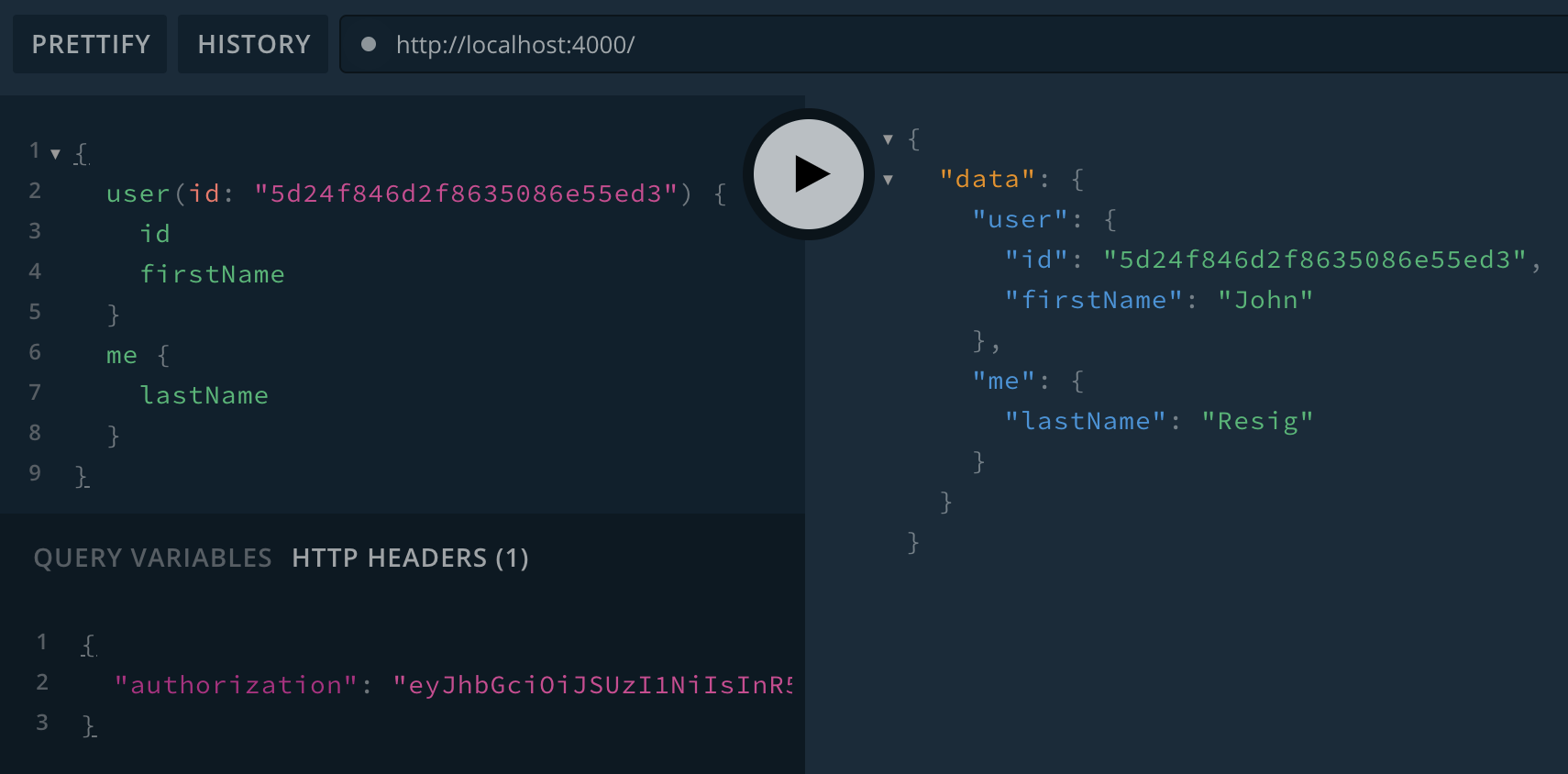Federated gateway
To view this content, get the Pro package! 😃🙏
Or if you’ve already purchased.
Federated gateway
If you’re jumping in here,
git checkout federation2_0.1.0(tag federation2_0.1.0, or compare federation2...federation3)
In the last section we implemented the users service. In this section, we’ll implement the gateway. The basic process is creating an ApolloGateway() that points to a list of the services, and then giving that to ApolloServer():
import { ApolloServer } from 'apollo-server'
import { ApolloGateway } from '@apollo/gateway'
const gateway = new ApolloGateway({
serviceList: [
{ name: 'users', url: 'http://localhost:4001/graphql' },
]
})
const server = new ApolloServer({
gateway,
subscriptions: false
})
server.listen().then(({ url }) => {
console.log(`Gateway ready at ${url}`)
})We disable subscriptions because they don’t yet work with ApolloGateway. This works, but it’s not yet sending the user HTTP header our users service expects. This takes two steps: copying our monolith’s context function to give to ApolloServer() and defining a buildService() function to add the header in requests to services:
import { ApolloServer } from 'apollo-server'
import { ApolloGateway, RemoteGraphQLDataSource } from '@apollo/gateway'
import context from './context'
import { mongoClient } from './lib/db'
class AuthenticatedDataSource extends RemoteGraphQLDataSource {
willSendRequest({ request, context }) {
request.http.headers.set('user', JSON.stringify(context && context.user))
}
}
const gateway = new ApolloGateway({
serviceList: [
{ name: 'users', url: 'http://localhost:4001/graphql' },
{ name: 'reviews', url: 'http://localhost:4002/graphql' }
],
buildService({ url }) {
return new AuthenticatedDataSource({ url })
}
})
const server = new ApolloServer({
gateway,
context,
subscriptions: false
})
mongoClient.connect()
server.listen().then(({ url }) => {
console.log(`Gateway ready at ${url}`)
})buildService() returns an AuthenticatedDataSource which sets the stringified user doc from the context as a header. willSendRequest() is then called for each request from the gateway to the services. We also import mongoClient in order to initiate the connection and import context from:
import { AuthenticationError } from 'apollo-server'
import { getAuthIdFromJWT } from './lib/auth'
import { mongoClient } from './lib/db'
export default async ({ req }) => {
const context = {}
const jwt = req && req.headers.authorization
let authId
if (jwt) {
try {
authId = await getAuthIdFromJWT(jwt)
} catch (e) {
let message
if (e.message.includes('jwt expired')) {
message = 'jwt expired'
} else {
message = 'malformed jwt in authorization header'
}
throw new AuthenticationError(message)
}
const user = await mongoClient
.db()
.collection('users')
.findOne({ authId })
if (user) {
context.user = user
} else {
throw new AuthenticationError('no such user')
}
}
return context
}The only difference between this and the monolith’s version is importing mongoClient instead of the db directly.
We can now run our users service and gateway in two different terminals:
$ npm run start-service-users
> [email protected] start-service-users /guide-api
> babel-watch services/users/index.js
Users service ready at http://localhost:4001/$ npm start
> [email protected] start /guide-api
> babel-watch gateway.js
Gateway ready at http://localhost:4000/
[INFO] Wed Mar 1 2020 04:55:43 GMT-0400 (EST) apollo-gateway: Gateway successfully loaded schema.
* Mode: unmanagedWhen we open the gateway URL, set our authorization header, and query, it works! 💃
